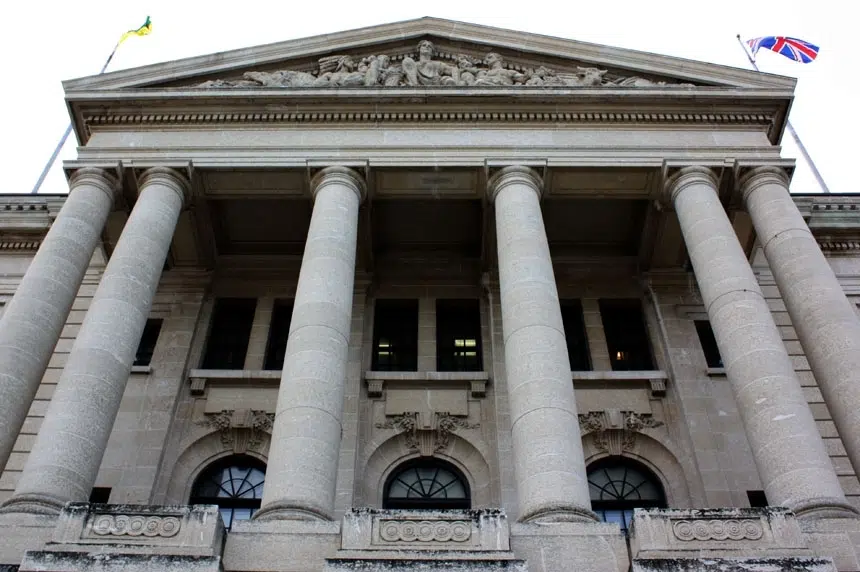The Saskatchewan government has backtracked on changes it made to the Saskatchewan Income Support (SIS) program.
The Ministry of Social Services said in a release Friday it will increase support for SIS clients with complex challenges who are at risk of homelessness.
“Since the launch of the SIS program in 2019, we’ve been listening to feedback and reviewing the program to consider if it needed adjustments,” Social Services Minister Lori Carr said in the release.
“While the majority of clients have been successful in managing their money and paying their own bills, we recognize that some clients with high needs require additional support, and we’re providing it.”
Carr was not available to speak to the changes on Friday.
David Exner, the assistant deputy minister of income assistance in the Ministry of Social Services, said to determine which clients would qualify, the ministry would work with clients on a case-by-case basis — including those with addictions issues and those who are having trouble finding or maintaining stable housing.
“We will be working with those individuals to assess their needs, develop their monthly budget, and determine if they need services and supports such as directing benefits on their behalf, or potentially connecting them with more intensive services like our money management and trusteeship supports,” explained Exner.
Exner couldn’t give a number on how many on SIS are expected to qualify for direct payments but did say the majority of people on SIS can manage their own bills and payments.
Critics had attacked the program for not providing the assistance required by those at risk of homelessness.
The basic housing allowance under SIS is $575 in Regina and Saskatoon and $525 outside the two cities. Under the program, all housing costs like power, heat, and water came out of that in addition to rent or a mortgage payment. Previously, Social Services had paid separately what those bills totalled.
Other changes in the program included no option for rent to be paid directly to a landlord or management company. Instead, it went to the beneficiary and they had to pay rent themselves.
In the changes announced Friday, Social Services will send direct payments of shelter benefits available for rent, utilities and security deposits on behalf of high-needs SIS clients.
The ministry also announced it will be investing $113,000 in the current fiscal year “to expand money management and trusteeship services provided through currently contracted community-based organizations by 25 per cent.”
“There are additional dollars available over and above basic amounts for people on the SIS program, including those who are homeless and/or have just recently transitioned to the new program,” the release said.
“This includes stabilization benefits to secure stable housing, additional dollars for emergency situations and a transition benefit for clients transitioning to SIS.”
Exner said the money has been added to support those who need more intensive services.
“We wanted to ensure that we provided supports, not just paying their shelter benefit — as an example — directly to a landlord. They may need some additional support around managing their own money that they’re receiving, whether that be the GST credit or whatever the case may be, to purchase groceries and those sorts of day-to-day pieces,” said Exner.
The news of the changes came on the same day the provincial government joined the City of Regina and Regina Treaty/Status Indian Services in announcing a new emergency indoor shelter for the people staying at Camp Hope — the homeless camp that popped up a month ago in Regina.
NDP calls the changes minor and inadequate
The NDP’s Meara Conway has been calling attention to what she and others in the community feel are failings in the SIS program for months.
On Friday, she called the announced changes to the program “inadequate” and “minor.”
“I don’t think we’re going to see this have any real impact on the growing housing crisis that we’re observing across the province,” she said.
She said it’s not clear how people will be identified to qualify for direct payments.
“I’ve raised concerns around how ministry staff are going to identify people on a case-by-case basis when they have crushing caseloads. Some of them have hundreds and hundreds of clients,” said Conway.
Conway also said the $113,000 added to support the management and trustee services is a “laughable” amount for the entire province and it won’t meet the significant challenges that have been aggravated by the new program.
Conway and the NDP believe that direct payments need to be reinstated for anyone who wants it under SIS.
Until now, Carr has defended the new program, saying any problems people are experiencing are on an individual level, not with the whole program. However, Carr did recently say the ministry would be evaluating the program and would work to fix any problems that were found.
Conway believes it’s criticism and political pressure that have forced these small changes.
“Up until now, (Carr’s) really dug her heels in (and) hasn’t acknowledged that there is an issue with SIS. But unfortunately, these recently announced changes don’t go anywhere near far enough to fix this broken program,” said Conway.
She said the pushback to SIS has brought together an unlikely coalition.
“From landlords to urban municipalities to poverty advocacy groups to FSIN, there has been an almost complete consensus that SIS is a catastrophic failure,” said Conway.
Among the solutions Conway believes are important to fix SIS are making direct payments available to anyone, covering utilities outside of the shelter benefit, creating contacts for community-based organizations outside the call centre line, making security deposits available when needed instead of every two years, and restoring other cuts like the benefits for school supplies and disabilities.
More information on SIS is available here.











